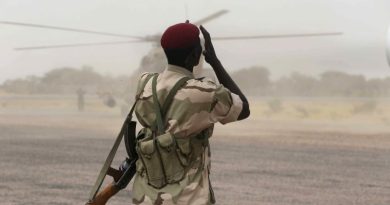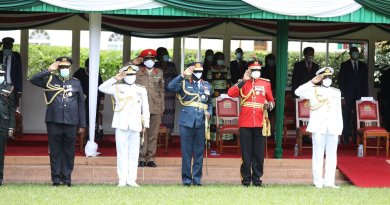As Russia and Turkey locks horns, Libya might be going the Syrian way
It is no longer news that Russia is preparing to prop-up Khalifa Haftar’s forces in Libya after their recent devastating defeats at the hands of the UN-recognized government in Libya’s capital Tripoli.
Khalifa Haftar’s forces, the self-styled Libyan National Army, or LNA launched an offensive to capture Tripoli in April last year, however, since then, the forces have made little or no progress. To be quite frank, the LNA despite some small gains, have been steadily losing ground to the GNA, a force which Haftar calls a terrorist militia group.
One of the recent significant losses for Haftar is the seizure of four of his highly strategic base, one of which is al-Watiya, located some 25km (16 miles) from the Tunisia border. The singinicance of the Al-Watita’s capture is that, it will allow the GNA forces to fully focus on repelling Haftar’s fighters in southern Tripoli.
More importantly, since al-Watiya it is the last stronghold for his Haftar’s forces in western Libya, this will change the balance of power in favor of the GNA.
Tactically, al-Watiya’s capture is basically the road to defeat for the LNA, because, Haftar can no longer supply his troops with much needed ammunition. This will free up the GNA to move down towards the south of Tripoli, towards Tarhuna, which is the Haftar’s last line of the offensive.
Other bases later captured include Yarmouk, al-Sawarikh, and Hamza camps south of the capital. Haftar’s forces held al-Watiya for six years. Al-Yarmouk military camp had been set as a central operations command to coordinate the battles in southern Tripoli, Russia’s mercenaries from the Wagner Group controlled the base.
Haftar which is supported by France, Russia, the UAE, and Egypt is still losing grounds, the latest series of losses have apparently prompted Russia to provide 14 advanced MiG-29 and Su-24 combat jets into the already volatile mix.
On the other hand, Turkey, in defiance of a UN arms embargo, signed a treaty with the GNA in November last year, in return for Libyan permission to access Mediterranean gas fields, has been supplying military support to the GNA. The bilateral treaty does not seat well with Greece, which has criticized the move, calling it a breach of international law and in violation of Greek sovereignty.
Driven by Turkey’s desire to secure its energy supplies and extend its access to Mediterranean gas fields, it support for the GNA has been growing, with supply of drones like the now proven Bayraktar TB2 combat drone as well as hundreds of Syrian mercenaries.
With al-Watiya airfield now within Turkey’s reach, it could become a strategic asset for Turkey, especially if it takes an interest in the country’s southern oilfields.
In October 2018, the United Kingdom’s Ministry of Defence warned that Russian forces new venture into Libya is a strategic move by Vladimir Putin, which wants to make the war-torn North African nation “his new Syria.” In that same month, Russian military aircraft particularly the Il-76 transport aircraft began landing at an airport in eastern Libya that has been used as a military base by the United Arab Emirates (UAE).
Dozens of officers from the Moscow’s GRU military espionage service as well as its Spetznaz special forces personnel were reportedly deployed to carry out training and liaison roles.
Today, the Libyan war have become a continuation of the proxy wars witnessed in Syria. Both Turkey and Russia have flown in Syrian militias, with the Russian mercenaries from an organisation known as the Wagner Group, run by Yevgeny Prigozhin, a close associate of President Putin. The Wagner fighters have also been used in Syria.
Following the ousting of late dictator Moammar Gadhafi in 2011, Libya’s legitimate government was founded in 2015 under a U.N.-led political deal. Since April 2019, the Government of National Accord (GNA) has been under attack by Haftar’s forces, based in eastern Libya, and more than 1,000 people have been killed in the violence.
With the recent escalation of the conflict by the two major powers, it appears that Libya a country that has been torn to pieces by civil war and foreign intervention, is on the road to a bleak future.

